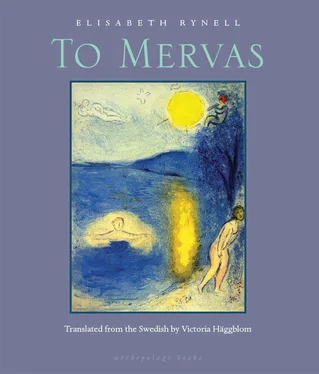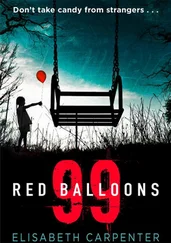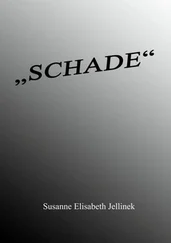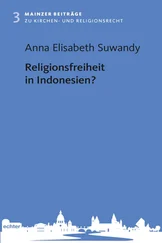“You can’t do that,” he said. “You have to go back to the maternity ward first. They have to discharge you there before you can come back to the children’s ward.”
“Then the police will have to come and take me back to the maternity ward. I’m going to my boy now.”
I felt strong enough to upend the whole hospital, if necessary.
The doctor thought I was being difficult and couldn’t hide his irritation. Finally, he gave in a little.
“You know, there’s no room for you in ward nineteen anyway. It’s an intensive care ward. You can’t stay there overnight.”
We then made our way in silence through the big hospital over to the remote children’s ward where they’d taken my child.
Entering the dimly lit room where the boy was supposed to be, I thought for a moment I’d ended up in Hieronymus Bosch’s Hell. Fetuses with tubes and hoses taped everywhere on their perplexing little bodies lay in their incubators, exposed in the strong lights like ancient relics or the crown jewels in a museum’s glass case. Around the room, between these incubators, were transparent carts with infants, and I immediately focused on a baby with shiny white pieces of tape on its face. The tape seemed to hold the unnaturally round cheeks together. I was filled with violent disgust at the thought that they had to tape the child’s cheeks to keep them in place, that otherwise they would fall away to each side like two loose lumps. My gaze searched the dim room and there, at the farthest end, I spotted the boy. The first thing I saw was that they’d taped his cheeks too. Narrow white strips appeared to tear his tiny face apart; it was as if they had marked him like a sacrificial animal.
At the sight of the boy, my breasts, which all day had been on the verge of exploding from the pressure of the hardening cement filling them, began to leak. I closed my eyes and leaned over the bed to finally inhale his scent, to feel his skin against mine. When I carefully folded the blanket aside to lift him up, I saw that the tape on his cheeks held a thin tube in place. It was placed inside one of his nostrils. A tube. A feeding tube. They don’t want me to feed him anymore, I thought. He would no longer get to lie in my arms and catch my nipple to drink with his whimsical, eager mouth. The doctors thought this boy was so sick he didn’t need a mother. He’d get a new, clinical mother; someone approved of, perhaps even a man.
I remember that I shook with a sense of injustice; it moved through every cell in my body. For a while, I stood and cried with the boy pressed against me. Then I put him back in the bed and went out to the nearby reception area. At a desk, a doctor was talking on the phone.
“Why have you given my child a feeding tube?” I asked, trying my utmost to remain calm, to not throw up, to not rush up to the man by the desk and start hitting him with the phone.
“Could you hold on a second?” he said. “As you can see, I’m on the phone.”
“I want to know why you’ve given my child a feeding tube!” I screamed. “He can eat on his own. I’m going to feed him. Me! You hear me? He’s my child!”
“Sorry,” the doctor said into the phone. “I think I’ve got a nursing-crazed mother on my hands.”
He turned to me. I saw the horns in his forehead.
“Which child are you referring to?” he asked.
The days that followed were like a slow descent into a warped underground realm, an abyss where faces in gaudy colors floated through the air, their voices snapping as if they had fangs. I searched for the boy everywhere, and everywhere he was taken away from me, following protocol after protocol according to regulations so sacred they couldn’t be questioned by anyone in heaven or on earth.
“We think the feeding tube is more practical because then we’ll know exactly how much he eats. We can send a breast pump to your room, so maybe eventually we’ll let you bottle-feed him,” someone said.
The first few days I tried to defend myself by transforming into a bear mother, a lioness, a tigress. But the high priests weren’t scared by any mother animals, they didn’t understand the meaning of words like mother, milk, mouths; they didn’t understand what thousands of years of deep dark knowledge and desire can awaken in a human being. They didn’t realize how close they were to driving me insane when they ignored the inner forces that threatened to tear me apart.
One evening when I sat in the little hospital room I had demanded, a nurse came to me and whispered:
“Don’t sit here pumping. Bring the baby in here and nurse him. Screw the doctors, they don’t understand anything.”
But by then it was too late; the claws of the tigress had already been trimmed, her teeth pulled out. The milk was drying up, and I didn’t dare try placing the child on my breast.
It would probably have been good for the boy to nurse. And for me too. When he was a week old, one of his arms began twitching strangely, and at the same time he started crying. And the crying never ceased. It went on day and night, every waking moment, and sometimes even when he slept. His cries were sometimes hoarse and exhausted, other times high and shrill.
But in the midst of this wailing, his gaze was alive, the boy’s gaze. It pierced through his tears. And it was insistent. Insistent that the world give him an answer.
Mervas existed. Yes, it exists. I found it in the index of a big Nordic atlas in the library. Mervas, it read suddenly, and I almost started with surprise. I’d found it! I got the strange idea that no one before me had ever looked it up in this atlas. Mervas was listed just for me; it had waited for me between the covers, waited to become a kind of sign, a secret pact between Kosti and me. If I came back later and looked it up again, it would no longer be there, having already served its purpose.
These were foolish thoughts, and as soon as they emerged I was filled with doubts. Perhaps the Mervas in the atlas wasn’t Kosti’s Mervas at all. His Mervas probably wasn’t in any atlas whatsoever. And even if this was the Mervas Kosti had referred to, nothing indicated that he’d be there. Or that he ever set foot there. That was what the grinding doubts in my head were saying.
I nevertheless searched the actual map to see where the place was. It was up north, way up north, in the middle of nowhere. Mervas, the map said, but there was no dot or square to indicate the place or reveal anything about it, just the six letters and something that appeared to be a road or possibly just a trail leading to it. I kept searching. At least Mervas was now a place in the world. Whatever it represented, it was a message from Kosti to me. Whether he really was there didn’t matter, I told myself. The important thing was that he’d sent me the name of this place after more than twenty years of silence. This place was marked on a map, it already carried the possibility of a story, even though it hadn’t been described as a village or mountain or with any other cartographic symbols used on a map. That was just as he’d written in his letter. Mervas was farther away than anything else; you couldn’t get any farther away.
Finally, after searching several encyclopedias and books about various municipalities, I found additional information in an older encyclopedia. Mervas, it said, former mining community in L., the mine closed in 1951, community abandoned and all buildings dismantled and removed in 1953.
So it was a nonexistent place. A former place. A ghost town. That’s where Kosti was. With the name of this place, he’d shaken and roused me from the sleep I’d allowed my life to sink into. I read the brief text several times, feeling oddly upset. It was somehow completely impossible for me to rationally and sensibly grasp these simple facts. I saw nothing but messages: hidden, intricate, subtle messages. Am I this shut-down mining town? I asked myself. If so, what did this mean: all buildings dismantled and removed ? Was this former mining community our relationship, our love affair?
Читать дальше












